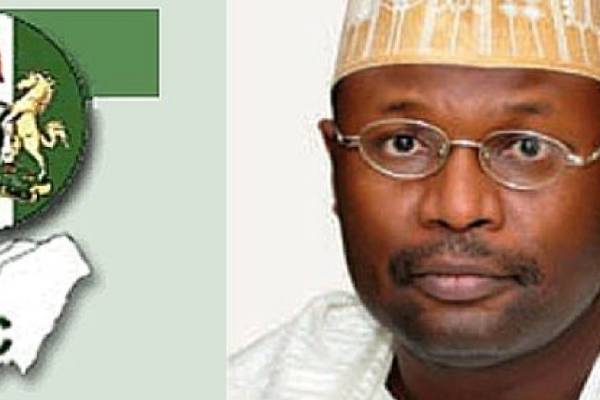Professional project managers have advocated proper planning and timely release of funds to address issues of failure and abandonment of projects in Nigeria.
They expressed worry over the number of delayed and abandoned projects across the country.
The Managers made these observations the Project Management Institute (PMI) Expo with the theme “Resolving project failure issues in the Public and Private Sectors”
In many parts of the world and Nigeria, post-Covid-19 recovery policy measures have involved investment in infrastructure projects.
An International Monetary Fund (IMF) report published ahead of the G20 leaders meeting in 2020, argued that a synchronised infrastructure investment push could invigorate growth, limit scarring, and address climate goals.
The report posited that when many countries act simultaneously, public infrastructure investment could help lift growth domestically and abroad through trade linkages.
In Nigeria, the Federal Government has established the Infrastructure Corporation of Nigeria (InfraCorp) with a seed capital of N1 trillion.
Experts in Project Management say a research into Nigeria’s project landscape suggests that project delivery remains an ongoing concern.
They resolve that government at all levels must ensure adequate planning is done, not just on budgetary provision for projects, but also on the release of approved funds.
The issue of abandoned or failed projects has assumed a more dramatic proportion since the return of democracy in 1999 with abandoned and failed projects littering the length and Breadth of the Country.
From abandoned and failed Constituency projects by lawmakers running into their thousands and projects in the Works and Housing Sectors, the value of abandoned projects at the beginning of the Muhammadu Buhari led administration was more than the first budget by the government and that was in the Works Sector alone.
The need to re-evaluate and reform Contract awards process in the country has been made several times in the last Seven and half years by the Minister of Works and Housing, Babatunde Fashola, who has always said the way Nigerian currently budget for projects will not ensure timely projects delivery.
Professional project managers have advocated proper planning and timely release of funds to address issues of failure and abandonment of projects in Nigeria.
They expressed worry over the number of delayed and abandoned projects across the country.
The Managers made these observations the Project Management Institute (PMI) Expo with the theme “Resolving project failure issues in the Public and Private Sectors”
In many parts of the world and Nigeria, post-Covid-19 recovery policy measures have involved investment in infrastructure projects.
An International Monetary Fund (IMF) report published ahead of the G20 leaders meeting in 2020, argued that a synchronised infrastructure investment push could invigorate growth, limit scarring, and address climate goals.
The report posited that when many countries act simultaneously, public infrastructure investment could help lift growth domestically and abroad through trade linkages.
In Nigeria, the Federal Government has established the Infrastructure Corporation of Nigeria (InfraCorp) with a seed capital of N1 trillion.
Experts in Project Management say a research into Nigeria’s project landscape suggests that project delivery remains an ongoing concern.
They resolve that government at all levels must ensure adequate planning is done, not just on budgetary provision for projects, but also on the release of approved funds.
The issue of abandoned or failed projects has assumed a more dramatic proportion since the return of democracy in 1999 with abandoned and failed projects littering the length and Breadth of the Country.
From abandoned and failed Constituency projects by lawmakers running into their thousands and projects in the Works and Housing Sectors, the value of abandoned projects at the beginning of the Muhammadu Buhari led administration was more than the first budget by the government and that was in the Works Sector alone.
The need to re-evaluate and reform Contract awards process in the country has been made several times in the last Seven and half years by the Minister of Works and Housing, Babatunde Fashola, who has always said the way Nigerian currently budget for projects will not ensure timely projects delivery.
Professional project managers have advocated proper planning and timely release of funds to address issues of failure and abandonment of projects in Nigeria.
They expressed worry over the number of delayed and abandoned projects across the country.
The Managers made these observations the Project Management Institute (PMI) Expo with the theme “Resolving project failure issues in the Public and Private Sectors”
In many parts of the world and Nigeria, post-Covid-19 recovery policy measures have involved investment in infrastructure projects.
An International Monetary Fund (IMF) report published ahead of the G20 leaders meeting in 2020, argued that a synchronised infrastructure investment push could invigorate growth, limit scarring, and address climate goals.
The report posited that when many countries act simultaneously, public infrastructure investment could help lift growth domestically and abroad through trade linkages.
In Nigeria, the Federal Government has established the Infrastructure Corporation of Nigeria (InfraCorp) with a seed capital of N1 trillion.
Experts in Project Management say a research into Nigeria’s project landscape suggests that project delivery remains an ongoing concern.
They resolve that government at all levels must ensure adequate planning is done, not just on budgetary provision for projects, but also on the release of approved funds.
The issue of abandoned or failed projects has assumed a more dramatic proportion since the return of democracy in 1999 with abandoned and failed projects littering the length and Breadth of the Country.
From abandoned and failed Constituency projects by lawmakers running into their thousands and projects in the Works and Housing Sectors, the value of abandoned projects at the beginning of the Muhammadu Buhari led administration was more than the first budget by the government and that was in the Works Sector alone.
The need to re-evaluate and reform Contract awards process in the country has been made several times in the last Seven and half years by the Minister of Works and Housing, Babatunde Fashola, who has always said the way Nigerian currently budget for projects will not ensure timely projects delivery.
Professional project managers have advocated proper planning and timely release of funds to address issues of failure and abandonment of projects in Nigeria.
They expressed worry over the number of delayed and abandoned projects across the country.
The Managers made these observations the Project Management Institute (PMI) Expo with the theme “Resolving project failure issues in the Public and Private Sectors”
In many parts of the world and Nigeria, post-Covid-19 recovery policy measures have involved investment in infrastructure projects.
An International Monetary Fund (IMF) report published ahead of the G20 leaders meeting in 2020, argued that a synchronised infrastructure investment push could invigorate growth, limit scarring, and address climate goals.
The report posited that when many countries act simultaneously, public infrastructure investment could help lift growth domestically and abroad through trade linkages.
In Nigeria, the Federal Government has established the Infrastructure Corporation of Nigeria (InfraCorp) with a seed capital of N1 trillion.
Experts in Project Management say a research into Nigeria’s project landscape suggests that project delivery remains an ongoing concern.
They resolve that government at all levels must ensure adequate planning is done, not just on budgetary provision for projects, but also on the release of approved funds.
The issue of abandoned or failed projects has assumed a more dramatic proportion since the return of democracy in 1999 with abandoned and failed projects littering the length and Breadth of the Country.
From abandoned and failed Constituency projects by lawmakers running into their thousands and projects in the Works and Housing Sectors, the value of abandoned projects at the beginning of the Muhammadu Buhari led administration was more than the first budget by the government and that was in the Works Sector alone.
The need to re-evaluate and reform Contract awards process in the country has been made several times in the last Seven and half years by the Minister of Works and Housing, Babatunde Fashola, who has always said the way Nigerian currently budget for projects will not ensure timely projects delivery.
Professional project managers have advocated proper planning and timely release of funds to address issues of failure and abandonment of projects in Nigeria.
They expressed worry over the number of delayed and abandoned projects across the country.
The Managers made these observations the Project Management Institute (PMI) Expo with the theme “Resolving project failure issues in the Public and Private Sectors”
In many parts of the world and Nigeria, post-Covid-19 recovery policy measures have involved investment in infrastructure projects.
An International Monetary Fund (IMF) report published ahead of the G20 leaders meeting in 2020, argued that a synchronised infrastructure investment push could invigorate growth, limit scarring, and address climate goals.
The report posited that when many countries act simultaneously, public infrastructure investment could help lift growth domestically and abroad through trade linkages.
In Nigeria, the Federal Government has established the Infrastructure Corporation of Nigeria (InfraCorp) with a seed capital of N1 trillion.
Experts in Project Management say a research into Nigeria’s project landscape suggests that project delivery remains an ongoing concern.
They resolve that government at all levels must ensure adequate planning is done, not just on budgetary provision for projects, but also on the release of approved funds.
The issue of abandoned or failed projects has assumed a more dramatic proportion since the return of democracy in 1999 with abandoned and failed projects littering the length and Breadth of the Country.
From abandoned and failed Constituency projects by lawmakers running into their thousands and projects in the Works and Housing Sectors, the value of abandoned projects at the beginning of the Muhammadu Buhari led administration was more than the first budget by the government and that was in the Works Sector alone.
The need to re-evaluate and reform Contract awards process in the country has been made several times in the last Seven and half years by the Minister of Works and Housing, Babatunde Fashola, who has always said the way Nigerian currently budget for projects will not ensure timely projects delivery.
Professional project managers have advocated proper planning and timely release of funds to address issues of failure and abandonment of projects in Nigeria.
They expressed worry over the number of delayed and abandoned projects across the country.
The Managers made these observations the Project Management Institute (PMI) Expo with the theme “Resolving project failure issues in the Public and Private Sectors”
In many parts of the world and Nigeria, post-Covid-19 recovery policy measures have involved investment in infrastructure projects.
An International Monetary Fund (IMF) report published ahead of the G20 leaders meeting in 2020, argued that a synchronised infrastructure investment push could invigorate growth, limit scarring, and address climate goals.
The report posited that when many countries act simultaneously, public infrastructure investment could help lift growth domestically and abroad through trade linkages.
In Nigeria, the Federal Government has established the Infrastructure Corporation of Nigeria (InfraCorp) with a seed capital of N1 trillion.
Experts in Project Management say a research into Nigeria’s project landscape suggests that project delivery remains an ongoing concern.
They resolve that government at all levels must ensure adequate planning is done, not just on budgetary provision for projects, but also on the release of approved funds.
The issue of abandoned or failed projects has assumed a more dramatic proportion since the return of democracy in 1999 with abandoned and failed projects littering the length and Breadth of the Country.
From abandoned and failed Constituency projects by lawmakers running into their thousands and projects in the Works and Housing Sectors, the value of abandoned projects at the beginning of the Muhammadu Buhari led administration was more than the first budget by the government and that was in the Works Sector alone.
The need to re-evaluate and reform Contract awards process in the country has been made several times in the last Seven and half years by the Minister of Works and Housing, Babatunde Fashola, who has always said the way Nigerian currently budget for projects will not ensure timely projects delivery.
Professional project managers have advocated proper planning and timely release of funds to address issues of failure and abandonment of projects in Nigeria.
They expressed worry over the number of delayed and abandoned projects across the country.
The Managers made these observations the Project Management Institute (PMI) Expo with the theme “Resolving project failure issues in the Public and Private Sectors”
In many parts of the world and Nigeria, post-Covid-19 recovery policy measures have involved investment in infrastructure projects.
An International Monetary Fund (IMF) report published ahead of the G20 leaders meeting in 2020, argued that a synchronised infrastructure investment push could invigorate growth, limit scarring, and address climate goals.
The report posited that when many countries act simultaneously, public infrastructure investment could help lift growth domestically and abroad through trade linkages.
In Nigeria, the Federal Government has established the Infrastructure Corporation of Nigeria (InfraCorp) with a seed capital of N1 trillion.
Experts in Project Management say a research into Nigeria’s project landscape suggests that project delivery remains an ongoing concern.
They resolve that government at all levels must ensure adequate planning is done, not just on budgetary provision for projects, but also on the release of approved funds.
The issue of abandoned or failed projects has assumed a more dramatic proportion since the return of democracy in 1999 with abandoned and failed projects littering the length and Breadth of the Country.
From abandoned and failed Constituency projects by lawmakers running into their thousands and projects in the Works and Housing Sectors, the value of abandoned projects at the beginning of the Muhammadu Buhari led administration was more than the first budget by the government and that was in the Works Sector alone.
The need to re-evaluate and reform Contract awards process in the country has been made several times in the last Seven and half years by the Minister of Works and Housing, Babatunde Fashola, who has always said the way Nigerian currently budget for projects will not ensure timely projects delivery.
Professional project managers have advocated proper planning and timely release of funds to address issues of failure and abandonment of projects in Nigeria.
They expressed worry over the number of delayed and abandoned projects across the country.
The Managers made these observations the Project Management Institute (PMI) Expo with the theme “Resolving project failure issues in the Public and Private Sectors”
In many parts of the world and Nigeria, post-Covid-19 recovery policy measures have involved investment in infrastructure projects.
An International Monetary Fund (IMF) report published ahead of the G20 leaders meeting in 2020, argued that a synchronised infrastructure investment push could invigorate growth, limit scarring, and address climate goals.
The report posited that when many countries act simultaneously, public infrastructure investment could help lift growth domestically and abroad through trade linkages.
In Nigeria, the Federal Government has established the Infrastructure Corporation of Nigeria (InfraCorp) with a seed capital of N1 trillion.
Experts in Project Management say a research into Nigeria’s project landscape suggests that project delivery remains an ongoing concern.
They resolve that government at all levels must ensure adequate planning is done, not just on budgetary provision for projects, but also on the release of approved funds.
The issue of abandoned or failed projects has assumed a more dramatic proportion since the return of democracy in 1999 with abandoned and failed projects littering the length and Breadth of the Country.
From abandoned and failed Constituency projects by lawmakers running into their thousands and projects in the Works and Housing Sectors, the value of abandoned projects at the beginning of the Muhammadu Buhari led administration was more than the first budget by the government and that was in the Works Sector alone.
The need to re-evaluate and reform Contract awards process in the country has been made several times in the last Seven and half years by the Minister of Works and Housing, Babatunde Fashola, who has always said the way Nigerian currently budget for projects will not ensure timely projects delivery.













